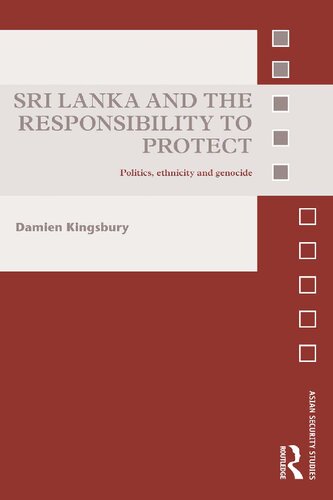

Most ebook files are in PDF format, so you can easily read them using various software such as Foxit Reader or directly on the Google Chrome browser.
Some ebook files are released by publishers in other formats such as .awz, .mobi, .epub, .fb2, etc. You may need to install specific software to read these formats on mobile/PC, such as Calibre.
Please read the tutorial at this link: https://ebookbell.com/faq
We offer FREE conversion to the popular formats you request; however, this may take some time. Therefore, right after payment, please email us, and we will try to provide the service as quickly as possible.
For some exceptional file formats or broken links (if any), please refrain from opening any disputes. Instead, email us first, and we will try to assist within a maximum of 6 hours.
EbookBell Team

5.0
18 reviewsThis book provides a study of the war by Liberation Tigers of Tamil
Eelam (LTTE) to create a separate state in Sri Lanka. It examines the
ways in which this war should, in principle, have invoked
‘Responsibility to Protect’ principles, as well as the political, legal
and practical problems involved and, ultimately, why the international
community failed to act.
Over the years there have been several events, including those in
Rwanda, Sierra Leone, Timor-Leste, Darfur, and Kosovo, that have led the
international community to accept a responsibility to protect. However,
despite its overwhelming preliminary endorsement, the principles of
this concept are still not universally sanctioned and there are some
strong international opponents, including some countries that were
initial signatories of the convention.
By considering the example of Sri Lanka, the text focuses on what
conditions could satisfy or demand the application of responsibility to
protect. It further presents a case as to why this conflict was, and may
still be, the normative responsibility of the international community.
Sri Lanka and the Responsibility to Protect will be of great
interest to students of South-East Asian politics, human rights,
international law, ethnic conflict, security studies and IR in general.